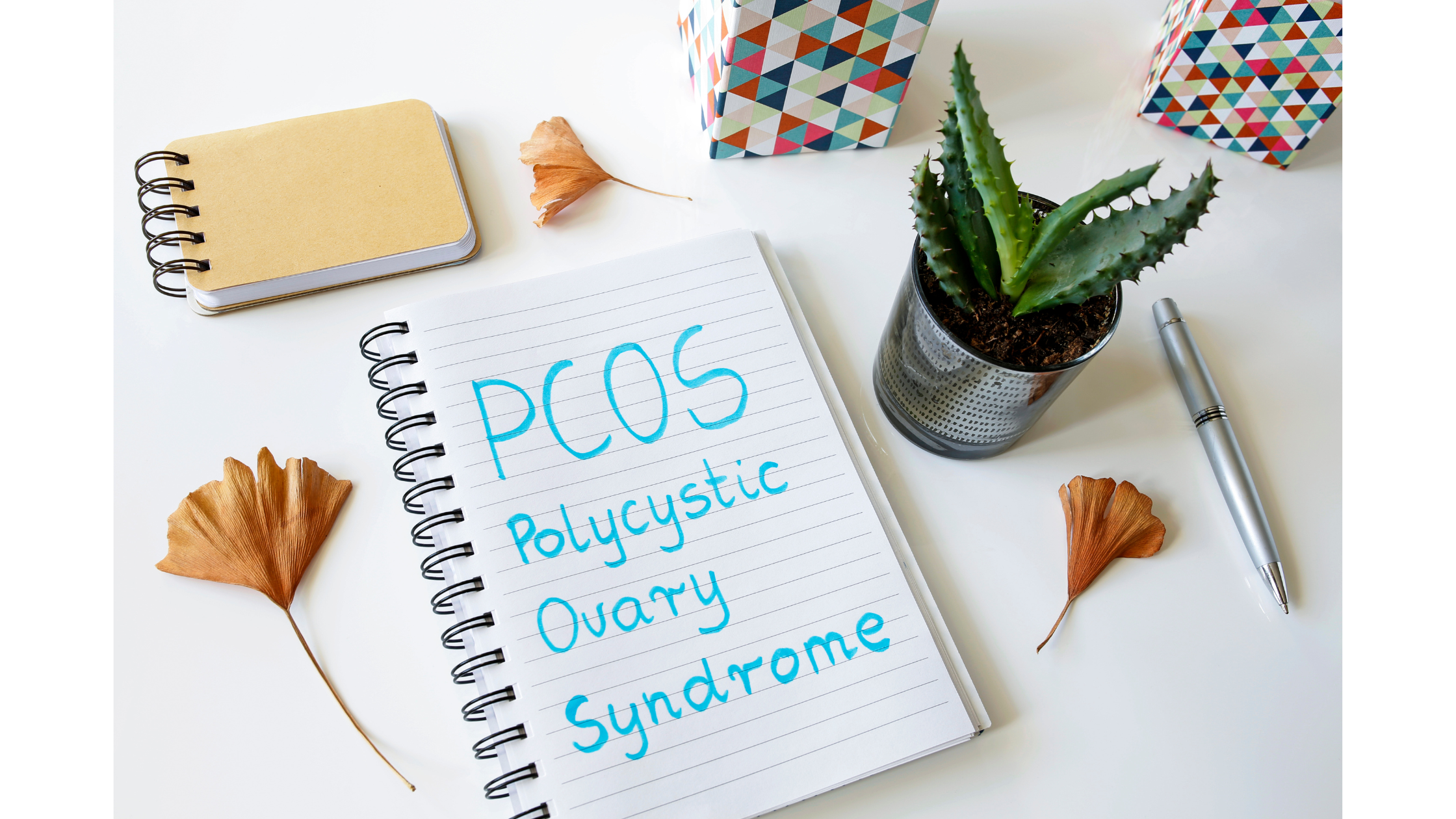Understanding Polycystic Ovary Syndrome (PCOS)
Causes, Symptoms, and Management
Polycystic Ovary Syndrome (PCOS) is a complex hormonal condition that affects millions of women worldwide. It often makes its presence known during adolescence, throwing a wrench into the delicate balance of hormones and causing a range of symptoms. In this comprehensive guide, we'll explore the intricacies of PCOS, from its causes and symptoms to various management strategies.
What is PCOS?
To understand PCOS, we first need to grasp its fundamental nature. PCOS is fundamentally a hormonal disorder that primarily affects women of reproductive age. It's characterized by the overproduction of androgen hormones, which include testosterone, in the ovaries. These excess androgens disrupt the typical menstrual cycle and lead to various symptoms.
The Menstrual Cycle and PCOS
In a healthy woman's menstrual cycle, the ovaries typically produce one mature follicle, which releases an egg during ovulation. A precise interplay of hormones orchestrates this process. However, in women with PCOS, this harmony is disrupted. The ovaries go into overdrive, producing many small follicles that never reach maturity. These immature follicles accumulate in the ovaries, preventing the release of eggs. This disruption is at the core of PCOS.
The Triad of PCOS:
PCOS is often diagnosed based on the presence of a triad of features:
Hyperandrogenism: This refers to the excess production of androgen hormones. The elevated levels of testosterone can lead to a range of symptoms, including hirsutism (male-pattern hair growth in women), acne, and hair loss.
Menstrual Irregularity: Women with PCOS frequently experience irregular menstrual cycles. Some may have infrequent periods, while others may experience heavy or prolonged bleeding.
Polycystic Ovaries: The term "polycystic" might suggest the presence of cysts, but it's a bit misleading. In PCOS, the ovaries contain multiple small, immature follicles that resemble cysts. These follicles don't mature and release eggs as they should.
Understanding these critical aspects of PCOS is essential as we delve deeper into this condition. In the sections, we'll explore the types of PCOS, the signs and symptoms you should watch for, and the potential complications associated with this condition.
Types of PCOS
While the core features of PCOS involve hyperandrogenism, menstrual irregularity, and polycystic ovaries, this condition can manifest in different ways. In adults, researchers have identified four common phenotypes or types of PCOS:
Classic PCOS: This is the most recognizable form of PCOS, characterized by the presence of hyperandrogenism, irregular ovulation (oligo-ovulation), and polycystic ovaries. Women with classic PCOS often experience pronounced symptoms such as acne, excess hair growth, and menstrual irregularities.
Hyperandrogenic PCOS: In this subtype, hyperandrogenism is the primary feature. Women with hyperandrogenic PCOS may experience excessive hair growth and other androgen-related symptoms, but they may still ovulate regularly.
Ovulatory PCOS: This type of PCOS is characterized by hyperandrogenism along with one or more polycystic ovaries. Surprisingly, women with ovulatory PCOS can still ovulate regularly, but they exhibit other PCOS symptoms related to androgen excess.
Non-Hyperandrogenic PCOS: In this subtype, women have irregular ovulation and one or more polycystic ovaries, but they do not display the classic signs of hyperandrogenism. Their primary concern may be menstrual irregularity.
Diagnosis Beyond Polycystic Ovaries
It's important to note that PCOS can be diagnosed in individuals who do not have polycystic ovaries. Diagnosis in adolescents primarily relies on evidence of hyperandrogenism and abnormal menstrual patterns. In such cases, other signs, symptoms, and clinical tests become critical in confirming the presence of PCOS.
The diversity of PCOS phenotypes underscores the complexity of this condition. It also highlights the importance of personalized diagnosis and treatment plans. Not every woman with PCOS will experience the same set of symptoms or respond to treatments in the same way. Medical professionals tailor their approaches based on individual needs.
Signs, Symptoms, and Complications
Understanding the signs and symptoms of PCOS is crucial for early diagnosis and effective management. PCOS can manifest in various ways, and its impact extends beyond the reproductive system. Here's a closer look at what you should be aware of:
Acanthosis Nigricans: This skin condition is characterized by dark, thick, and velvety patches in body folds and creases, such as the neck, armpits, and groin. It can be a visual indicator of insulin resistance, common in PCOS.
Hirsutism: Excessive hair growth in a male-pattern distribution is a hallmark symptom of PCOS. This can include extra facial hair, chest hair, and hair on the abdomen and back.
Menstrual Irregularity: Irregular periods are a common feature of PCOS. Women may experience infrequent periods, heavy bleeding, or periods that last longer than usual.
Obesity: Many women with PCOS struggle with weight management. The hormonal imbalances associated with PCOS can make it challenging to maintain a healthy weight.
Pelvic Pain: Some women with PCOS may experience pelvic pain or discomfort, which can be related to the presence of polycystic ovaries.
Polycystic Ovaries: As the name suggests, PCOS is often associated with polycystic ovaries, sacs of fluid that form in the ovaries due to the accumulation of immature follicles.
Treatment-Resistant Acne: Acne that does not respond well to standard treatments can be a symptom of PCOS, as hormonal imbalances often drive it.
Complications of PCOS
Having PCOS is not just about managing the visible symptoms; it's also about addressing potential health risks and complications. Women with PCOS have an increased risk of developing or experiencing:
Insulin Resistance: PCOS is often linked to insulin resistance, which can lead to high blood sugar levels. This increases the risk of type 2 diabetes.
Cardiovascular Disease: Women with PCOS have a higher likelihood of developing heart-related conditions, including high blood pressure and unhealthy cholesterol levels.
Infertility: The irregular ovulation associated with PCOS can make it challenging to conceive. Fortunately, fertility treatments can often help women with PCOS become pregnant.
Recognizing these signs, symptoms, and potential complications is the first step toward effective management. PCOS is a complex condition that requires a multifaceted approach to care, including lifestyle changes, medical interventions, and support from healthcare professionals.
Causes and Risk Factors
While the exact causes of PCOS remain elusive, researchers have identified several risk factors that may contribute to its development:
Functional Ovarian Hyperandrogenism (FOH) as an Adolescent: Some women may have a predisposition to PCOS from a young age due to functional ovarian hyperandrogenism.
Heritable Traits: There is evidence to suggest that maternal PCOS may increase the likelihood of a daughter developing PCOS.
Metabolic Conditions: Conditions like insulin resistance, diabetes, and obesity are often associated with PCOS and may play a role in its development.
Physical Inactivity: A sedentary lifestyle can exacerbate the symptoms of PCOS and contribute to weight gain.
Preventing and Addressing PCOS
Managing PCOS requires a multifaceted approach that addresses its underlying hormonal imbalances and associated risks. Healthy lifestyle habits, including diet and exercise, are recommended to help women with PCOS manage weight and improve hormonal health and overall well-being.
Diet
A well-balanced diet is essential for PCOS management. Here are some dietary recommendations:
Avoid: Limit the consumption of refined sugars, processed foods, and high-fat dairy products.
Enjoy: Include plenty of fruits, vegetables, whole grains, lean proteins, and healthy fats.
Research suggests that reducing refined carbohydrates and dairy may improve insulin sensitivity, lower testosterone levels, and promote weight loss. In addition, a reduced-calorie or reduced-carbohydrate diet can support weight management and improve ovarian function.
Physical Activity
Exercise is a crucial component of PCOS management. Here are some exercise recommendations:
Adolescents should aim for at least 60 minutes of moderate to vigorous physical activity daily, including muscle and bone strengthening exercises three days per week.
Adults Ages 18 to 64: Aim for at least 150 minutes per week of moderate physical activity or 75 minutes per week of vigorous activity, including muscle strengthening exercises two days per week.
Reduce Sedentary Time: Minimize screen time and sitting to stay active throughout the day.
Exercise is vital for maintaining a healthy weight, but it's essential to strike a balance to avoid hormonal disruptions. Low-impact exercises like yoga, swimming, and light aerobics are recommended. High-intensity interval training and long-distance running may also help improve PCOS symptoms.
Weight Management
Achieving a healthy weight is a crucial goal for many women with PCOS. Strategies for weight management include:
Healthy Lifestyle Habits:
Set goals
Monitor progress
Seek social support to achieve weight loss.
Losing 5 to 10% of body mass may increase ovulation frequency, improve chances of pregnancy, and balance hormones in overweight individuals.
Dietary Supplements
Certain supplements may help with hormone regulation, insulin resistance, and inflammation associated with PCOS. Here are some supplements to consider:
Inositol: A B vitamin that can improve insulin resistance and fertility in some cases of PCOS.
Chromium (picolinate): This may help with PCOS by improving body mass index and stabilizing insulin resistance.
Cinnamon: Has a positive effect on insulin resistance and may regulate menstruation for women with PCOS.
Turmeric (Curcumin): Promising for decreasing insulin resistance and acting as an anti-inflammatory agent.
Zinc: A trace element that can boost fertility, improve hair growth, and enhance immune function.
Evening Primrose Oil: Used to help with period pain, irregular menstruation, and cholesterol levels.
Vitamin D: Vital for the endocrine system, it can improve irregular periods and ovulation.
Cod Liver Oil: Contains vitamins D and A and omega-3 fatty acids, which can improve menstrual regularity and reduce abdominal fat.
Probiotics: Support gut health, reduce inflammation, and regulate sex hormones like androgen and estrogen.
Berberine: An herb used in Chinese medicine that can help with insulin resistance and metabolism.
Maca Root: Used to boost fertility, balance hormones, and alleviate symptoms of PCOS.
Ashwagandha: Helps balance cortisol levels, reduce stress, and improve PCOS symptoms.
Holy Basil (Tulsi): Addresses chemical and metabolic stress, lowers blood sugar, and prevents weight gain.
Licorice Root: Contains glycyrrhizin, which has anti-inflammatory properties and helps metabolize sugar.
Tribulus Terrestris: Stimulates ovulation and supports healthy menstruation.
Chasteberry: Used for centuries to improve some PMS symptoms and potentially enhance fertility.
Practice Good Sleep Hygiene
Quality sleep is essential for hormonal balance. Here are some sleep hygiene tips:
Aim for eight to ten hours of sleep per night.
Establish a regular bedtime routine.
Avoid stimulants and rich, fatty foods before bedtime.
Reduce Stress
Reducing stress is crucial for regulating cortisol levels and balancing hormones. Strategies include:
Engage in stress-reducing activities such as meditation, deep breathing exercises, and mindfulness.
Take walks outside and create space for relaxation and self-care.
Limit or Avoid Endocrine Disruptors
Endocrine disruptors can interfere with your hormonal system. Avoiding these substances can help reduce PCOS symptoms. Everyday endocrine disruptors include dioxins, phthalates, pesticides, BPA, and glycol ethers.
Consider Acupuncture
Acupuncture has shown promise as an alternative treatment for PCOS. It may improve blood flow to the ovaries, reduce cortisol levels, aid in weight loss, and enhance insulin sensitivity.
Other Lifestyle Considerations
PCOS can involve psychological factors such as anxiety, depression, body image concerns, and disordered eating. Consider seeking support, including cognitive-behavioral therapy and counseling, to address these aspects of PCOS management.
Medical Diagnosis and Treatment Options
Diagnosing PCOS involves a comprehensive evaluation by a healthcare professional. A medical history review, physical examination, and various tests may be conducted to confirm the diagnosis. These tests often include blood tests to measure hormone levels, such as testosterone and insulin, and imaging studies like ultrasound to examine the ovaries.
Treatment Goals
Once diagnosed, the primary goals of PCOS treatment are to:
Regulate Menstrual Cycles: Establishing regular menstrual cycles is crucial, not only for reproductive health but also for reducing the risk of endometrial cancer.
Manage Symptoms: Addressing hirsutism, acne, hair loss, and other visible symptoms is essential for improving the quality of life.
Fertility: For women trying to conceive, ovulation induction methods may be employed to enhance fertility.
Prevent Long-Term Complications: Managing insulin resistance and reducing the risk of type 2 diabetes and cardiovascular disease is a critical aspect of PCOS care.
Medications and Hormonal Therapy
Medical treatment for PCOS often involves the use of medications to address specific symptoms and underlying hormonal imbalances:
Birth Control Pills: Oral contraceptives can regulate menstrual cycles, reduce androgen levels, and improve hirsutism and acne.
Anti-Androgen Medications: These medications, such as spironolactone, can help reduce excessive hair growth and acne.
Metformin: Typically used to treat type 2 diabetes, metformin can improve insulin sensitivity in women with PCOS.
Ovulation-Inducing Medications: Clomiphene citrate and letrozole are often used to induce ovulation in women with PCOS who wish to become pregnant.
Lifestyle and Dietary Changes
While medications are valuable tools in PCOS management, lifestyle modifications play a crucial role. Here are additional recommendations to support a healthy lifestyle:
Portion Control: Managing portion sizes can assist in weight management and reduce the risk of insulin resistance.
Regular Meals and Snacks: Eating at regular intervals can help stabilize blood sugar levels.
Low Glycemic Index Foods: Focus on foods with a low glycemic index, such as whole grains, fruits, and vegetables, to help control blood sugar.
Adequate Hydration: Staying well-hydrated is essential for overall health.
Stress Reduction: Stress management techniques like meditation, deep breathing exercises, and mindfulness can help balance hormones.
Support and Resources
Living with PCOS can be challenging, both physically and emotionally. Fortunately, there are numerous resources and support networks available to help individuals with PCOS navigate their journey:
Healthcare Providers
A crucial source of support is a knowledgeable healthcare provider specializing in women's health and PCOS. They can offer guidance, monitor treatment progress, and adjust treatment plans.
Support Groups
Many online and in-person support groups bring together individuals with PCOS to share experiences, seek advice, and offer encouragement. Connecting with others who understand the challenges of PCOS can be immensely helpful.
Education
Numerous reputable organizations and websites provide valuable information about PCOS. These resources offer up-to-date research, expert advice, and practical tips for managing the condition.
Future Research and Advances in PCOS
PCOS is an active area of research, and ongoing studies aim to deepen our understanding of the condition. Future advances in PCOS management may include more targeted treatments and personalized medicine approaches based on an individual's unique hormonal profile.
Precision Medicine
As researchers uncover more about the genetic and hormonal factors contributing to PCOS, precision medicine approaches may emerge. This would allow healthcare providers to tailor treatments to the specific needs of each patient.
Hormonal Therapies
Ongoing research may lead to the development of more effective hormonal therapies with fewer side effects, further improving the management of PCOS-related symptoms.
Conclusion
Polycystic Ovary Syndrome (PCOS) is a complex condition that affects many aspects of a woman's health, from reproductive function to metabolic balance. While there is no cure for PCOS, effective management is possible through a combination of medical treatment, lifestyle changes, and support. By addressing the root causes and symptoms of PCOS, individuals can lead healthier lives and reduce their risk of long-term complications.
Whether you're newly diagnosed with PCOS or have been managing it for years, remember that you're not alone. Seek guidance from healthcare professionals, connect with support networks, and stay informed about the latest research and treatments. With the right tools and resources, living well with PCOS is achievable, and the future holds promise for more tailored and effective interventions.
Supercharge your well-being while saving 20% discount on premium vitamin supplements.
Create your account at our online dispensary and seize the opportunity to enjoy free shipping and exclusive discounts at checkout.
References:
Asemi, Z., & Esmaillzadeh, A. (2015). DASH diet, insulin resistance, and serum hs-CRP in polycystic ovary syndrome: A randomized controlled clinical trial. Hormone and Metabolic Research = Hormon- Und Stoffwechselforschung = Hormones Et Metabolisme, 47(3), 232–238. https://doi.org/10.1055/s-0034-1376990
Badawy, A., & Elnashar, A. (2011). Treatment options for polycystic ovary syndrome. International Journal of Women’s Health, 3, 25–35. https://doi.org/10.2147/IJWH.S11304
Berberine: MedlinePlus Supplements. (n.d.). Retrieved October 30, 2023, from https://medlineplus.gov/druginfo/natural/1126.html
Chasteberry. (n.d.). NCCIH. Retrieved October 30, 2023, from https://www.nccih.nih.gov/health/chasteberry
Cinnamon. (n.d.). NCCIH. Retrieved October 30, 2023, from https://www.nccih.nih.gov/health/cinnamon
Cod Liver Oil: MedlinePlus Supplements. (n.d.). Retrieved October 30, 2023, from https://medlineplus.gov/druginfo/natural/1040.html
Cowan, S., Lim, S., Alycia, C., Pirotta, S., Thomson, R., Gibson-Helm, M., Blackmore, R., Naderpoor, N., Bennett, C., Ee, C., Rao, V., Mousa, A., Alesi, S., & Moran, L. (2023). Lifestyle management in polycystic ovary syndrome—Beyond diet and physical activity. BMC Endocrine Disorders, 23(1), 14. https://doi.org/10.1186/s12902-022-01208-y
El Hayek, S., Bitar, L., Hamdar, L. H., Mirza, F. G., & Daoud, G. (2016). Poly Cystic Ovarian Syndrome: An Updated Overview. Frontiers in Physiology, 7, 124. https://doi.org/10.3389/fphys.2016.00124
Evening Primrose Oil | NCCIH. (n.d.). Retrieved October 30, 2023, from https://www.nccih.nih.gov/health/evening-primrose-oil
Lee, W.-L., Lee, F.-K., & Wang, P.-H. (2022). Vitamin D and polycystic ovary syndrome. Taiwanese Journal of Obstetrics & Gynecology, 61(6), 919–920. https://doi.org/10.1016/j.tjog.2022.06.010
Lemaitre, M., Christin-Maitre, S., & Kerlan, V. (2023). Polycystic ovary syndrome and adipose tissue. Annales D’endocrinologie, 84(2), 308–315. https://doi.org/10.1016/j.ando.2022.11.004
Leung, W. T., Tang, Z., Feng, Y., Guan, H., Huang, Z., & Zhang, W. (2022). Lower Fiber Consumption in Women with Polycystic Ovary Syndrome: A Meta-Analysis of Observational Studies. Nutrients, 14(24), 5285. https://doi.org/10.3390/nu14245285
Li, M.-F., Zhou, X.-M., & Li, X.-L. (2018). The Effect of Berberine on Polycystic Ovary Syndrome Patients with Insulin Resistance (PCOS-IR): A Meta-Analysis and Systematic Review. Evidence-Based Complementary and Alternative Medicine: eCAM, 2018, 2532935. https://doi.org/10.1155/2018/2532935
Licorice Root | NCCIH. (n.d.). Retrieved October 30, 2023, from https://www.nccih.nih.gov/health/licorice-root
Liu, J., Liu, Y., & Li, X. (2023). Effects of intestinal flora on polycystic ovary syndrome. Frontiers in Endocrinology, 14, 1151723. https://doi.org/10.3389/fendo.2023.1151723
Maca: MedlinePlus Supplements. (n.d.). Retrieved October 30, 2023, from https://medlineplus.gov/druginfo/natural/555.html
Ndefo, U. A., Eaton, A., & Green, M. R. (2013). Polycystic ovary syndrome: A review of treatment options with a focus on pharmacological approaches. P & T: A Peer-Reviewed Journal for Formulary Management, 38(6), 336–355.
Office of Dietary Supplements - Ashwagandha: Is it helpful for stress, anxiety, or sleep? (n.d.). Retrieved October 30, 2023, from https://ods.od.nih.gov/factsheets/Ashwagandha-HealthProfessional/
Office of Dietary Supplements—Chromium. (n.d.). Retrieved October 30, 2023, from https://ods.od.nih.gov/factsheets/Chromium-HealthProfessional/
Phy, J. L., Pohlmeier, A. M., Cooper, J. A., Watkins, P., Spallholz, J., Harris, K. S., Berenson, A. B., & Boylan, M. (2015). Low Starch/Low Dairy Diet Results in Successful Treatment of Obesity and Co-Morbidities Linked to Polycystic Ovary Syndrome (PCOS). Journal of Obesity & Weight Loss Therapy, 5(2), 259. https://doi.org/10.4172/2165-7904.1000259
Polycystic ovary syndrome: MedlinePlus Genetics. (n.d.). Retrieved October 29, 2023, from https://medlineplus.gov/genetics/condition/polycystic-ovary-syndrome/
Rudnicka, E., Duszewska, A. M., Kucharski, M., Tyczyński, P., & Smolarczyk, R. (2022). OXIDATIVE STRESS AND REPRODUCTIVE FUNCTION: Oxidative stress in polycystic ovary syndrome. Reproduction (Cambridge, England), 164(6), F145–F154. https://doi.org/10.1530/REP-22-0152
Shrivastava, S., & Conigliaro, R. L. (2023). Polycystic Ovarian Syndrome. The Medical Clinics of North America, 107(2), 227–234. https://doi.org/10.1016/j.mcna.2022.10.004
Teede, H. J., Misso, M. L., Costello, M. F., Dokras, A., Laven, J., Moran, L., Piltonen, T., Norman, R. J., & International PCOS Network. (2019). Erratum. Recommendations from the international evidence-based guideline for the assessment and management of polycystic ovary syndrome. Human Reproduction (Oxford, England), 34(2), 388. https://doi.org/10.1093/humrep/dey363
Teede, H. J., Tay, C. T., Laven, J. J. E., Dokras, A., Moran, L. J., Piltonen, T. T., Costello, M. F., Boivin, J., Redman, L. M., Boyle, J. A., Norman, R. J., Mousa, A., & Joham, A. E. (2023). Recommendations From the 2023 International Evidence-based Guideline for the Assessment and Management of Polycystic Ovary Syndrome. The Journal of Clinical Endocrinology and Metabolism, 108(10), 2447–2469. https://doi.org/10.1210/clinem/dgad463
Thornburgh, S., & Gaskins, A. J. (2022). B vitamins, polycystic ovary syndrome, and fertility. Current Opinion in Endocrinology, Diabetes, and Obesity, 29(6), 554–559. https://doi.org/10.1097/MED.0000000000000773
Tribulus terrestris as an ingredient in dietary supplements. (n.d.). Retrieved October 30, 2023, from https://www.opss.org/article/tribulus-terrestris-ingredient-dietary-supplements
Tribulus terrestris—An overview | ScienceDirect Topics. (n.d.). Retrieved October 30, 2023, from https://www.sciencedirect.com/topics/medicine-and-dentistry/tribulus-terrestris
Turmeric | NCCIH. (n.d.). Retrieved October 30, 2023, from https://www.nccih.nih.gov/health/turmeric
Vitamin D - Health Professional Fact Sheet. (n.d.). Retrieved October 30, 2023, from https://ods.od.nih.gov/factsheets/VitaminD-HealthProfessional/
Zinc—Health Professional Fact Sheet. (n.d.). Retrieved October 30, 2023, from https://ods.od.nih.gov/factsheets/Zinc-HealthProfessional/







